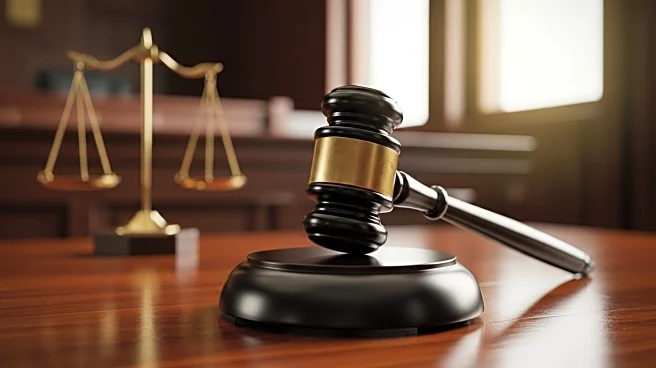What is the story about?
What's Happening?
A London court has dismissed a terror-related charge against Liam Óg Ó hAnnaidh, a member of the Irish-language hip-hop group Kneecap. The charge was related to displaying a Hezbollah flag during a concert in London. The court ruled that the charge was filed incorrectly, lacking necessary consent within the statutory time limit. The decision was welcomed by Northern Ireland's First Minister Michelle O'Neill, who criticized the charges as an attempt to silence opposition to Israeli actions in Gaza.
Why It's Important?
The dismissal of the charge is significant in the context of free speech and political activism. It highlights the challenges faced by artists who engage in political discourse, particularly on contentious issues like the Israeli-Palestinian conflict. The ruling may set a precedent for how similar cases are handled, impacting the legal landscape for artists and activists. It also raises questions about the balance between national security and freedom of expression.
What's Next?
The Crown Prosecution Service is reviewing the court's decision, which could lead to changes in how similar cases are prosecuted. The ruling may encourage other artists to speak out on political issues, potentially leading to increased scrutiny and legal challenges. The case may also influence public discourse on the role of artists in political activism and the limits of free expression.
Beyond the Headlines
The case highlights the tension between artistic expression and legal restrictions, particularly in politically charged environments. It raises questions about the balance between national security concerns and the right to free speech, and how legal systems can navigate these complex issues. The outcome may influence public discourse on the role of artists in political activism and the limits of free expression.
















